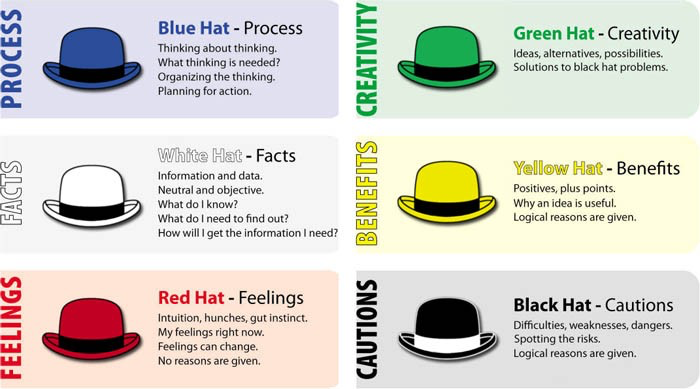3 Traits that determines child’s future success
There’s more to a child’s success in life than just intelligence. Every parent aspires to help their child thrive, and understanding the factors that contribute to their success is a crucial first step.
Recently, parents have relied on a theory called the cognitive hypothesis. It is based on the notion that the most powerful predictors of a child’s future success are cognitive abilities, like skills in math or word and pattern recognition, and moreover that these skills are best developed by providing the child with as much cognitive stimulation as possible from the earliest possible moment. This idea has also driven the rising demand for early childhood educational products.
In fact, a number of studies support the cognitive hypothesis, showing that cognitive skills and early cognitive stimulation are indeed helpful predictors of future success in both work and education.
However, substantial evidence also highlights the critical role of non-cognitive skills—traits often referred to as one’s “character”—in determining future success. They are perseverance, conscientiousness, and self-discipline.
The Importance of Non-Cognitive Skills
1. Perseverance
2. Conscientiousness
3. Self-Discipline
Okay. So how do we help our children to develop these positive traits in daily life?
Practical suggestions for parents
1. Encouraging Perseverance
- Set Goals Together: Help your child set achievable goals, both short-term and long-term. Celebrate small milestones to keep them motivated.
- Model Perseverance: Share stories of your own challenges and how you overcame them. Show persistence in your daily tasks. There is no better role model than parents themselves to children.
- Provide Constructive Feedback: Encourage effort over outcome. Praise your child’s hard work and dedication, even if the result isn’t perfect. Key is not to focus on result or outcome but praise the effort he put into it.
- Engage in Challenging Activities: Introduce your child to activities that require sustained effort, such as learning a musical instrument, playing sports, or engaging in long-term projects that your child show interest in.
2. Cultivating Conscientiousness
- Establish Routines: Create consistent daily routines for homework, chores, and bedtime. This helps children learn responsibility and time management.
- Teach Organizational Skills: Show your child how to break down tasks into manageable steps. Use tools like to-do lists and planners.
- Encourage Thoroughness: Emphasize the importance of doing tasks well, not just quickly. Teach them to review their work and make improvements.
- Involve Them in Household Tasks: Assign age-appropriate chores that require attention to detail, such as setting the table, organizing their room, or helping with grocery shopping.
3. Building Self-Discipline
- Set Clear Expectations: Establish clear rules and consequences. Consistency helps children understand the importance of self-control.
- Create a Distraction-Free Environment: Help your child focus on their work by minimizing distractions. Set up a dedicated study space.
- Teach Self-Monitoring: Encourage your child to set personal goals and monitor their progress. Use charts or journals to track achievements and areas for improvement and review together and assist your child to achieve whatever personal goals they set up.
Daily Action Plan for you to practice and implement into your daily life.
Morning Routine
- Start the Day with a Goal: Discuss one goal your child wants to achieve today. It could be related to school, hobbies, or personal improvement.
- Teach Conscientiousness: Assign a small chore before school, such as making the bed or packing their lunch. Ensure they complete it thoroughly and praise their effort.
During the Day
- Encourage Perseverance: When your child encounters a challenging task, remind them of their goal and encourage them to keep trying. Offer support and guidance, but let them solve problems independently.
- Reinforce Self-Discipline: Limit screen time and encourage productive activities like reading, playing educational games, or engaging in creative projects.
After School
- Review the Day: Ask your child about their day. What went well? What was challenging? Use this time to discuss perseverance and how they handled difficulties.
- Homework Routine: Establish a consistent homework schedule. Set a deadline and help him to stick to the deadline.
- Extracurricular Activities: Engage your child in activities that require discipline and commitment, such as sports, music lessons, or clubs.
Evening Routine
- Reflect on Goals: Review the goal set in the morning. Discuss what your child did to work towards it and what they can improve tomorrow.
- Prepare for Tomorrow: Help your child prepare for the next day by organizing their backpack, laying out clothes, and setting goals for the next day.
- Bedtime Reading: End the day with a story that emphasizes perseverance, conscientiousness, or self-discipline. Discuss the moral of the story and how it applies to their life.
Above daily routine may sound like a lot to do, but once these activities become daily habits, they’ll happen automatically with little effort.
Summary
While cognitive skills are undeniably important for a child’s future success, non-cognitive skills such as perseverance, conscientiousness, and self-discipline play an equally crucial role. By fostering these traits, parents can help their children develop a strong character that will enable them to overcome challenges and achieve their goals.
Implementing a daily action plan that emphasizes these non-cognitive skills can make a significant difference in your child’s development. Through consistent effort, supportive guidance, and practical activities, you can nurture these essential traits and set your child on a path to lifelong success.
Remember, success is not just about what you know but also about who you are. By cultivating perseverance, conscientiousness, and self-discipline, you are giving your child the tools they need to succeed in all areas of life.













LEAVE A COMMENT